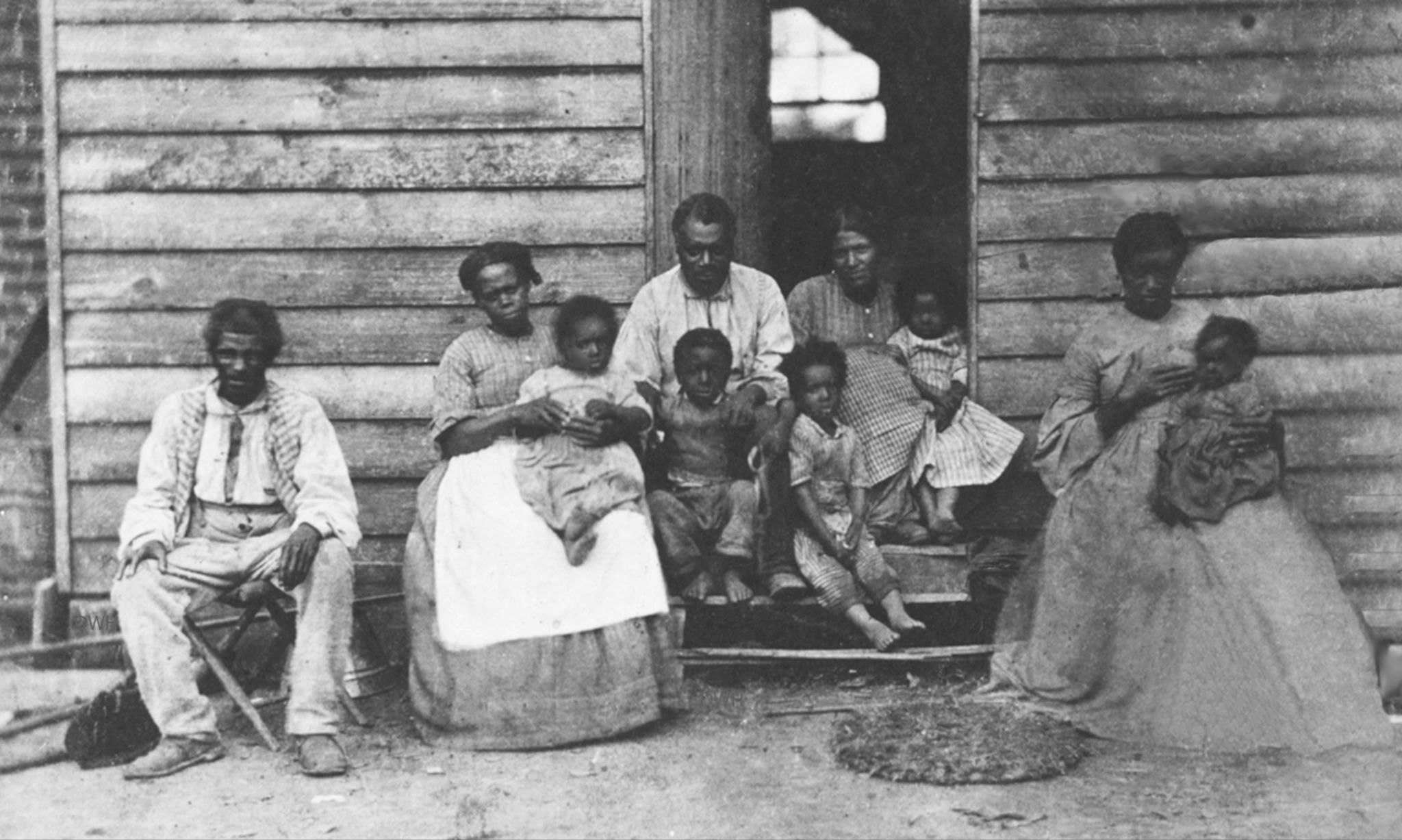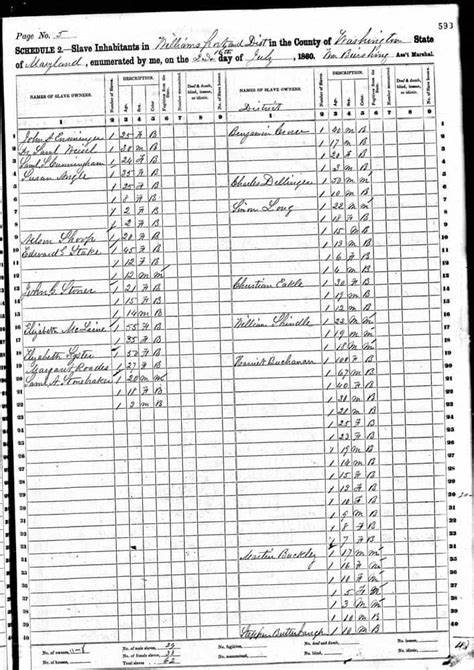Were My Ancestors Slaves?
Having researched extensively in the United States I am well aware of its history and some of the disturbing and shocking things you may discover in a family tree. I have had a number of clients with African American ancestry and there is always a lingering question that many do not want to ask. Were my ancestors slaves?
As professional as I always try to remain, this is always something that feels very charged and rightly so. Any African American living in the United States unless they know exactly when their ancestors moved to this country has to wonder about how their family got here.
Ancestry is Our Top Recommendation
If you love genealogy and family history research, then you must know Ancestry. They are the best way to discover the rich stories of your family!
With over 30 billion (seriously!) records in their database, you can research your family and discover amazing details you may never have known about your ancestors.
With a 14-day free trial, it's very easy to get started and discover your past!
Get Started →In this post we take a look at how you might be able to find out if your ancestors were slaves and perhaps how you might find out more about them.
Slavery in the United States
It is thought that hundreds of thousands of Africans both free and enslaved played a major role in ensuring the survival of the first American colonies. There is no exact start date for the practice of slavery within the united states.
It is known however that in 1619 a privateer ship called the White Lion brought 20 enslaved Africans ashore to the British Jamestown colony. These slaves had been seized from a Portuguese slaver ship. This likely served as the catalyst as throughout the 17th century European settlers began to turn to enslaved Africans as a form of cheap labor in their fields.
It is estimated that throughout the the 18th century some 6-7 million enslaved people were brought to the New World Throughout the 17th and 18th centuries these African slaves were forced to toil in the fields to support production of rice, tobacco and indigo.

In the agriculturally dependent south the practice of slavery grew into a massive industry while in the north many saw the oppression of the Africans as akin to their own struggles under the British crown. The two sets of circumstances of course being vastly different in severity but this feeling did lead to abolitionist sentiments.
On Jan 1st 1863 Abraham Lincoln officially freed all slaves within any state of the union. This was of course the start of a road which in some ways has still yet to reach its completion but at that time 3 million African slaves were made into free persons.
Some Slaves Were Already Free
Prior to the American Civil War throughout the hundreds of years of slavery there were slaves who either escaped from slavery, were released or bought their way free. It was never an easy life for a freed slave especially if they tried to remain in the South.
How Can You Know if Your Ancestors Were Slaves?
In order to truly know the origin of our ancestors the only way to have a chance of finding the answer is to research our family trees. Those whose ancestors may have come over to the United States within the past few generations may have done so as completely free individuals.
If your African born ancestors emigrated of their own free will then at least in terms of the United States they were not likely slaves. This does not mean that some of your ancestors who lived in Africa did not experience slavery within Africa itself.
Those who know that their family has been in the United States for as long as they can remember may have to do some digging. This will require talking to the oldest living members of your family to find out as much as you can about your family history.
Once you have talked with your senior family members, use this information to start building your family tree. Using a site like Ancestry,com can be very helpful in helping you get further back into your family's past.
Researching Possible Slave Ancestors
If you can trace your family back as far as the 1870 census there is a chance that some of them were born slaves. This census would be the first one in which African Americans would be listed as named individuals.
Specifically looking at former slave owning states subtract 10 years from the age of any family member you find in the 1970 census and take note of where they are living. Search for any local white families who may have the same surnames of your ancestors.
It is now time to go to the 1860 slave schedule and see if any of those white families from the 1870 census previously owned slaves in 1860. It was often common that enslaved African Americans would use the name of their owners as their surnames.
When looking at the slave schedule compare the ages of the family group in 1870 to those in the 1860 census. There may be no names listed for the enslaved individuals in 1860 but common ages can be an indication of that family unit being there.
You may find a few slave owners in the 1860 census with the same surnames as your family as found in the 1870 census. Using the relative ages of your known family is the best way to eliminate some of the possibilities.

The ultimate aim is to try and find a likely white slave owning family who may have owned your ancestors. Once you achieve this the next step is to find out what you can about those people. Search for wills related to those families as sometimes slaves were bequeathed and would be mentioned by name.
There may also be other records available relating to those slave owners which might name their slaves or describe them in more detail.
Which Records Can Help You?
As mentioned, census records and slave schedules can be very helpful in possibly locating ancestors who were slaves. Other helpful records include those of the Freedmans bank, county records and the private documents of former slave owners.

Business ledgers, diaries, correspondence and even family bibles can offer up clues to your potential slave ancestors. It is not easy to research ancestors who were slaves both logistically and emotionally. Slave owners considered their slaves more as livestock than humans.
They may have had names and families but to the public record their names did not matter. Even the mere fact of this can be distressing in itself. Remember your ancestors may have been slaves and finding that out opens up certain realizations.
You should be sure that you are prepared to find out the answer to this question. You may not know these people but you come from them and the reality of the suffering they have undergone can be distressing.
Conclusion
African Americans whose families have been in the United States for as long as any family member can remembers have a high likelihood of being descendants of slaves. Millions of African born men, women and children were brought to America to be used as slaves.
Their descendants today likely count in the millions as well. The only way to know for sure if your ancestors were slaves is to try and research them. It is possible you might not get far enough back to get your answer one way or the other. There is still a chance however you can find out and perhaps get a look into the lives of your ancestors.
Link To or Reference This Page
We spent a lot of time downloading, cleaning, merging, and formatting the data that is shown on the site.
If you found the data or information on this page useful in your research, please use the tool below to properly cite or reference Name Census as the source. We appreciate your support!
-
<a href="https://namecensus.com/blog/were-my-ancestors-slaves/">Were My Ancestors Slaves?</a>
-
"Were My Ancestors Slaves?". NameCensus.com. Accessed on April 23, 2024. https://namecensus.com/blog/were-my-ancestors-slaves/.
-
"Were My Ancestors Slaves?". NameCensus.com, https://namecensus.com/blog/were-my-ancestors-slaves/. Accessed 23 April, 2024
-
Were My Ancestors Slaves?. NameCensus.com. Retrieved from https://namecensus.com/blog/were-my-ancestors-slaves/.
